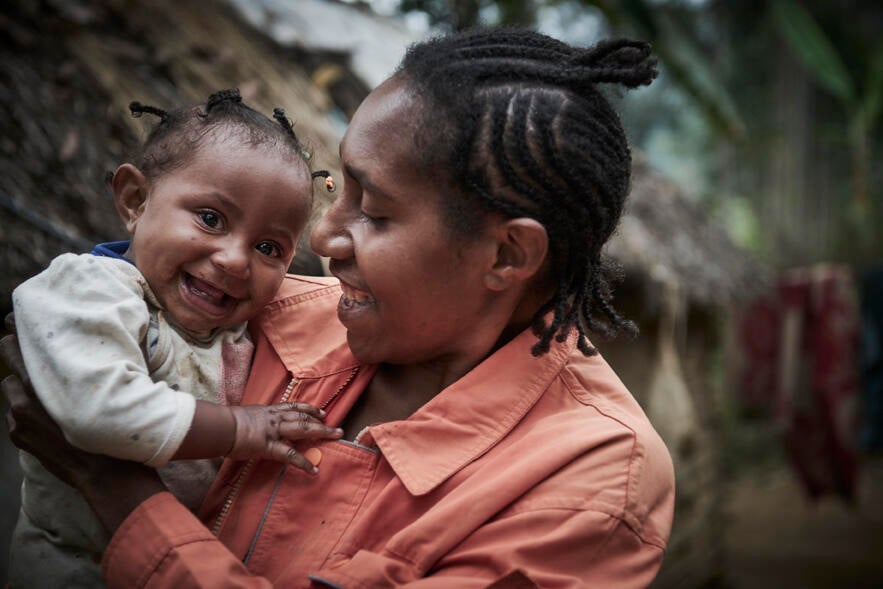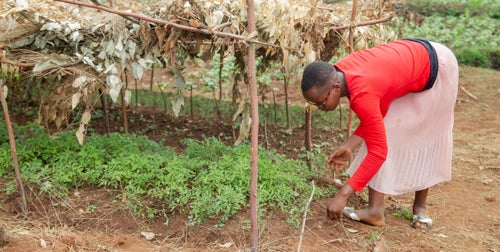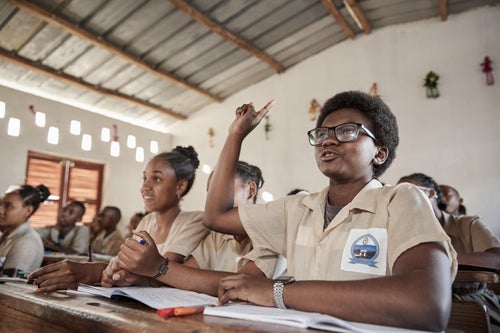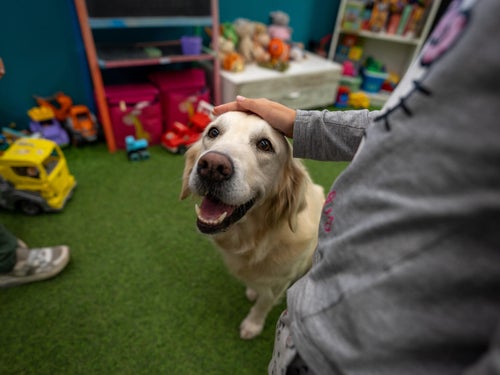A child’s first five years lay the foundation for the rest of their life.
The first relationships, environments and experiences of little ones shape how their brain develops. Here are five simple tips proven to help parents and caregivers boost your child’s learning, behavioural skills and health.
1. Encourage early learning for a head start at school
Our brains are built over time. When we’re babies, construction is in overdrive: a baby’s brain cells make 1 million new connections every second. By the time we’re three years old, our young brain is still twice as active as an adult.
This period of active brain development is a once-in-a-lifetime opportunity. The more skills children acquire early on, the better they learn later. Psychologists have found that, when learnt early, skills like regulating emotions and actions give children a head start at school.
Here are some easy ways to start learning early:
- Something as simple as playing with a rattle can stimulate learning: slowly move colourful items for your baby to see and reach for or help them follow an object with their eyes.
- Get the most out of your everyday play by asking questions. When you’re looking at picture books together or playing hide and seek, ask about the pictures they see or where you’ve hidden items.
- Cut out simple pictures of familiar things, people and animals. Try to get pictures with different colours, textures, scenes and faces. Talk about the pictures as your baby looks at them.
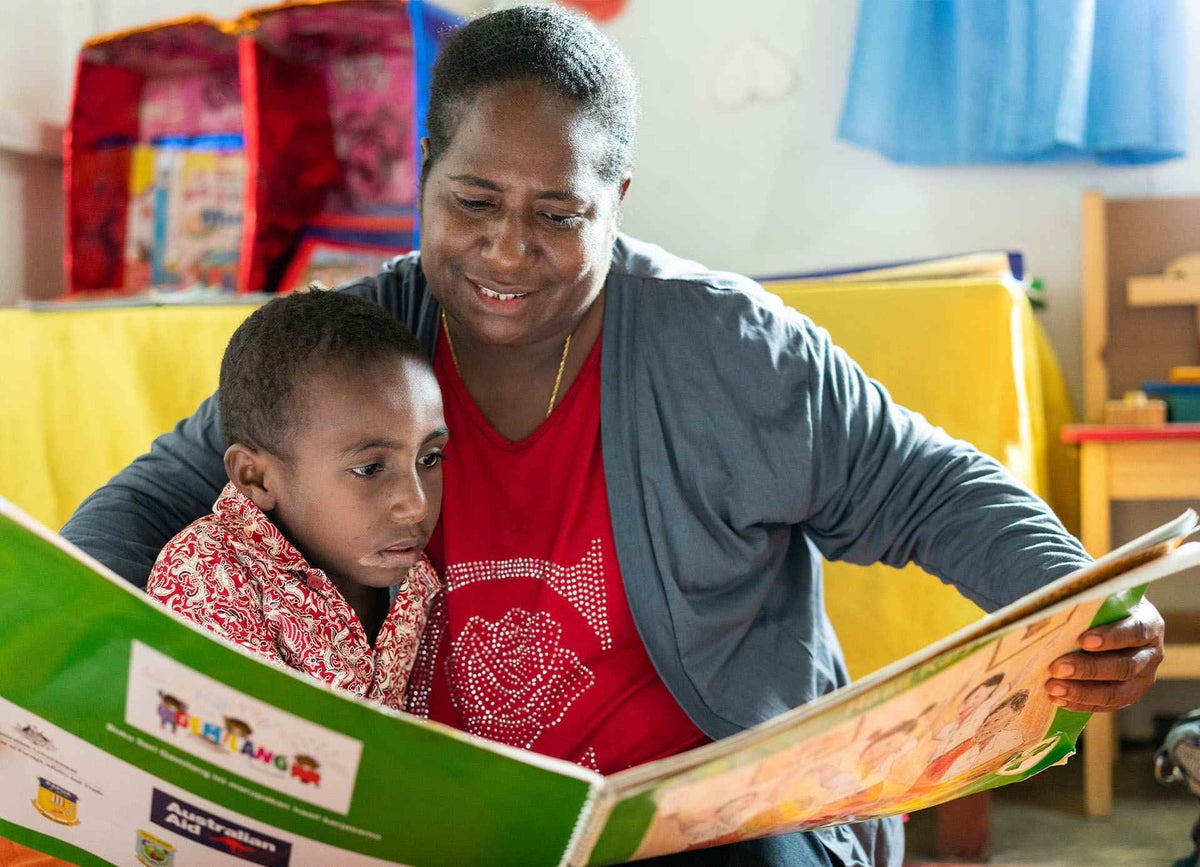
Felina didn’t have time to take her five-year-old daughter to preschool. Instead, she would bring Yuli to work every day, helping to pick fruits and vegetables in the fields before going to sell them in the market.
Preschool is vital for children ahead of joining full time school. However, it is out of reach for too many children in the Asia Pacific region.
So, the head of the preschool started an awareness campaign, with support from UNICEF, to change these attitudes. Teachers met with families to explain how early education would better prepare their children for primary school.
Now Felina takes Yuli to school every day on her way to work. “After school, Yuli is full of happiness,” she says. “She always tells us everything she learned that day.”
Islamic Relief Australia is partnering with UNICEF Australia this year to help littles ones like Yuli across the Asia Pacific access early learning, no matter what.
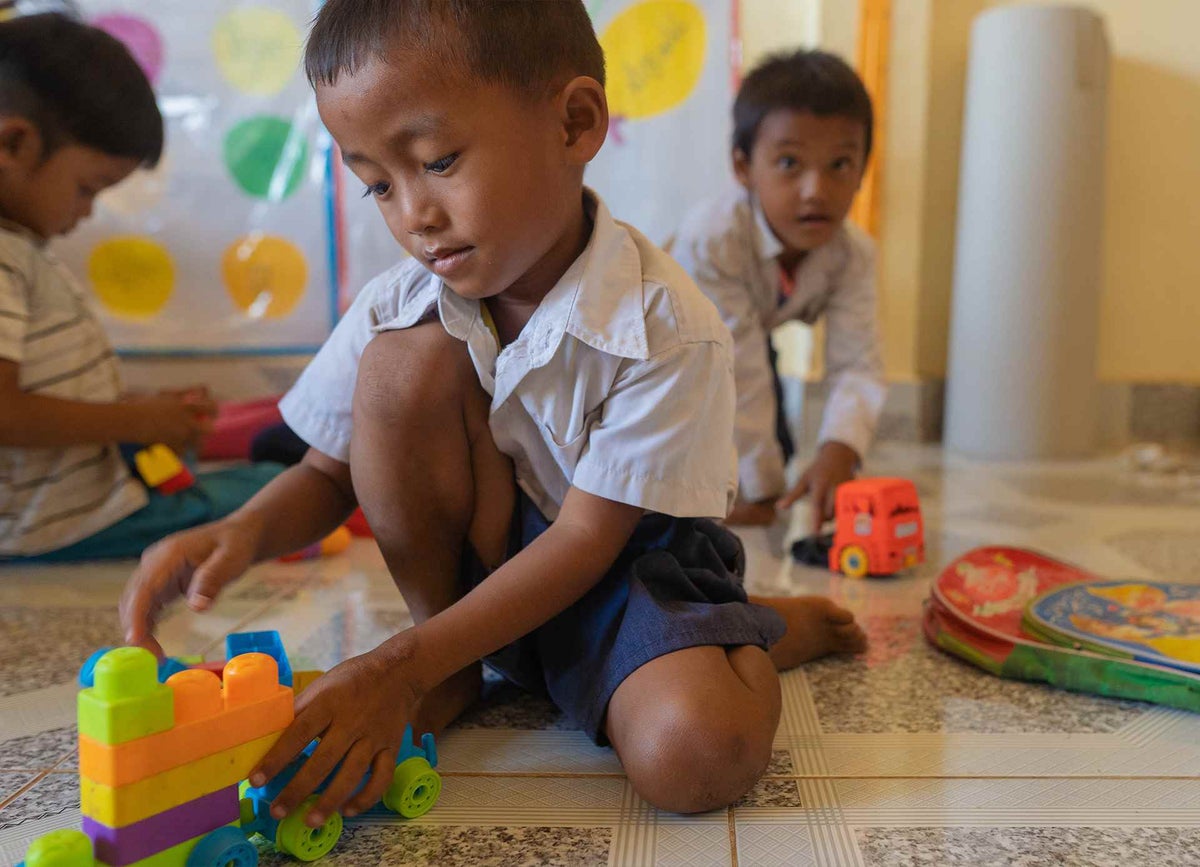
2. Building blocks can be so much more
To you, they’re building blocks. To a child, they’re a castle. For little brains, they’re tools that stimulate learning. Simple toys can teach babies and toddlers complex lessons. Dropping a rattle can teach them how objects fall. Banging a bowl with their spoon can show them how to make a noise. Hitting a tower of blocks with their hand can help them understand cause-and-effect.
The impact of play ripples through childhood. One study links building blocks with higher language scores for children in middle and low-income families. Another found disadvantaged children who participated in a play program for two years scored higher than their peers on cognitive tests at ages 11, 12, 17 and 18, as well going on to earn 25 per cent more in later life.
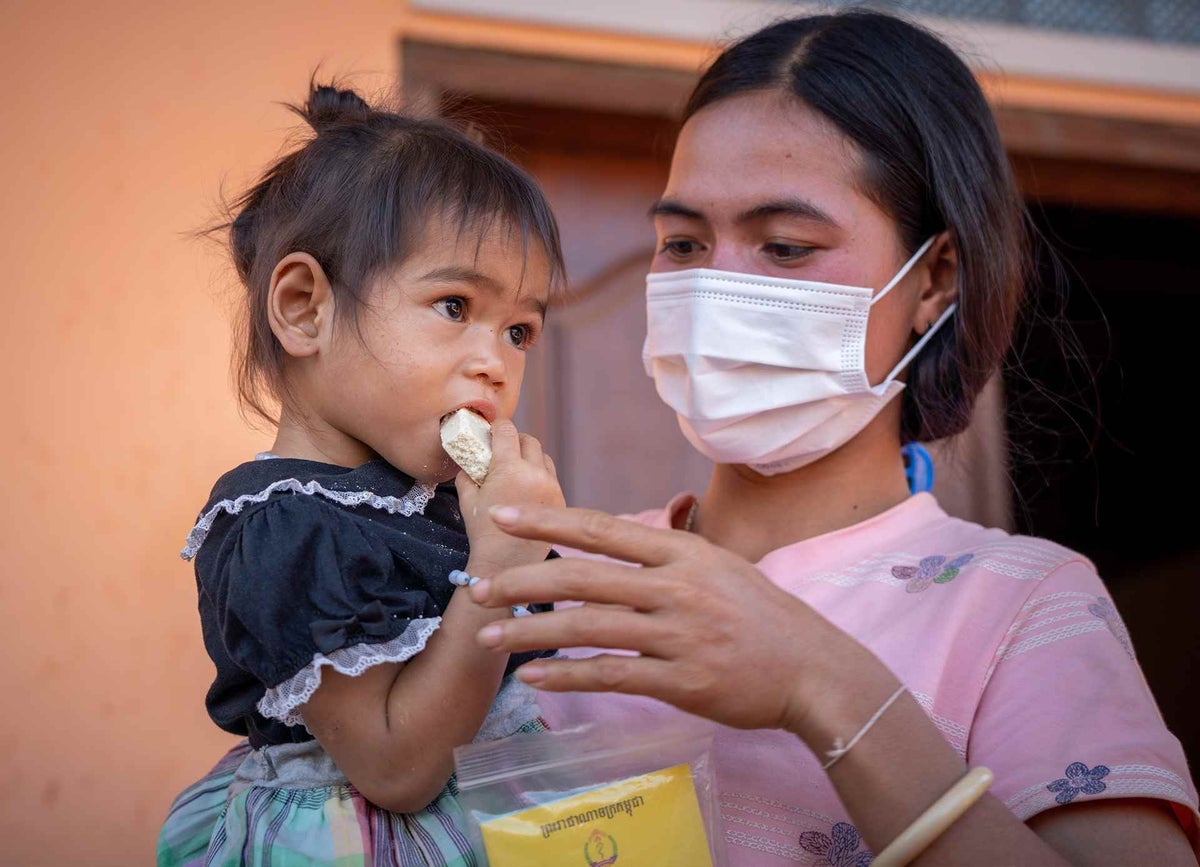
3. Strong bodies equal strong minds
Good nutrition is not just about strong bodies – it’s also about strong minds. During the first two years, up to 75 per cent of each meal goes to building your baby’s brain. Your little ones watch everything you do – including at mealtimes. Between 1-2 years your child can eat all the food your family eats (unless they have allergies), so make every bite count.
- At 1-year, solid foods – including healthy snacks – are now your child’s main source of energy and nutrition.
- Your child can have between three quarters to one cup of food three to four times a day, plus one to two snacks between meals.
- Continue breastfeeding as much as your child wants, until they are at least 2 years old.
Give your child lots of love and encouragement to eat during mealtimes. Interact with your child, smile, talk and praise them for eating. Make the meal a happy time!
Sol is a young mum to little Solina in Cambodia. “I knew she was a bit small, and I was worried about why she wasn’t growing... when they said she had severe acute malnutrition, I was shocked.”
At a UNICEF supported health clinic in Cambodia, Solina was provided with a ready-to-use, therapeutic food to treat her malnutrition. Sol is grateful that she now knows how to provide vital nutrients and Solina is on her way to a full recovery.
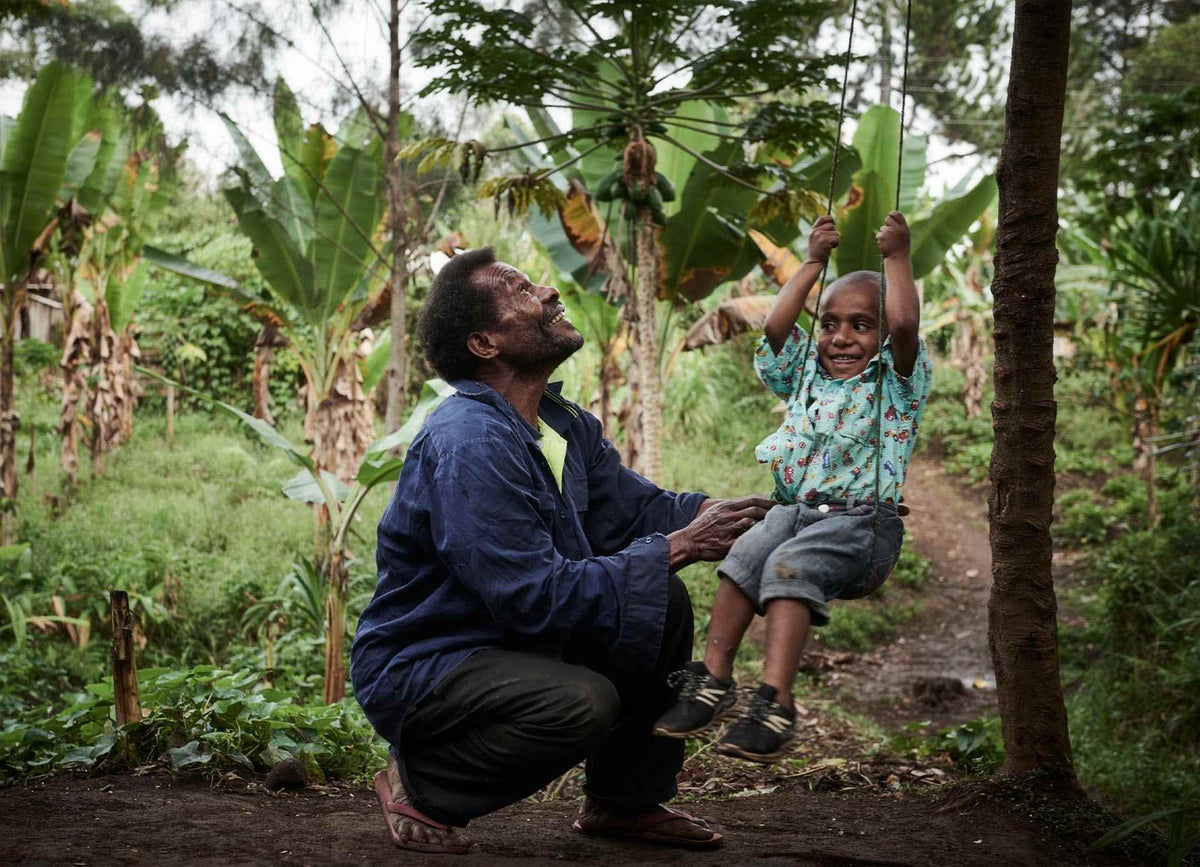
4. Provide a playtime challenge for a brain boost
Playtime with attentive and nurturing caregivers is invaluable for a child’s development.
One proven method of using play to advance learning is called scaffolding: when a parent or caregiver gently nudges their children towards success at a task beyond their ability. For example, a mother could help her two-year-old son build a tower by pointing him towards building blocks of the correct size. As long as caregivers keep changing challenges based on their child’s development, scaffolding can help children gradually solve problems independently.
5. Listen to little voices
Before they say a word, children learn from what is being said to them. When parents and caregivers respond to a baby’s cry, smile or coo, it helps their brains build social and communications skills. Babies then copy the sounds and actions of the people around them, building knowledge by connecting words together in webs of meaning.
Stanford University psychologists found that toddlers with parents and caregivers who spoke to them were better at processing language at 18 months old and knew more words by the time they reached two years old.
Besides teaching words in isolation, parents and caregivers can also facilitate word learning by paying attention to a child’s interests and talking about things that have engaged them. As toddlers learn to talk, asking questions can help more than giving instructions. Positive talk from a caregiver can have a long-term impact: psychologists found that a child who hears positive talk at two-years-old can better control their impulses when they’re six.
Islamic Relief Australia is partnering with UNICEF Australia this year to provide the best start to life for little ones across the Asia Pacific by providing critical early childhood education and nutrition programs.
DONATE NOWRelated articles
Stay up-to-date on UNICEF's work in Australia and around the world



